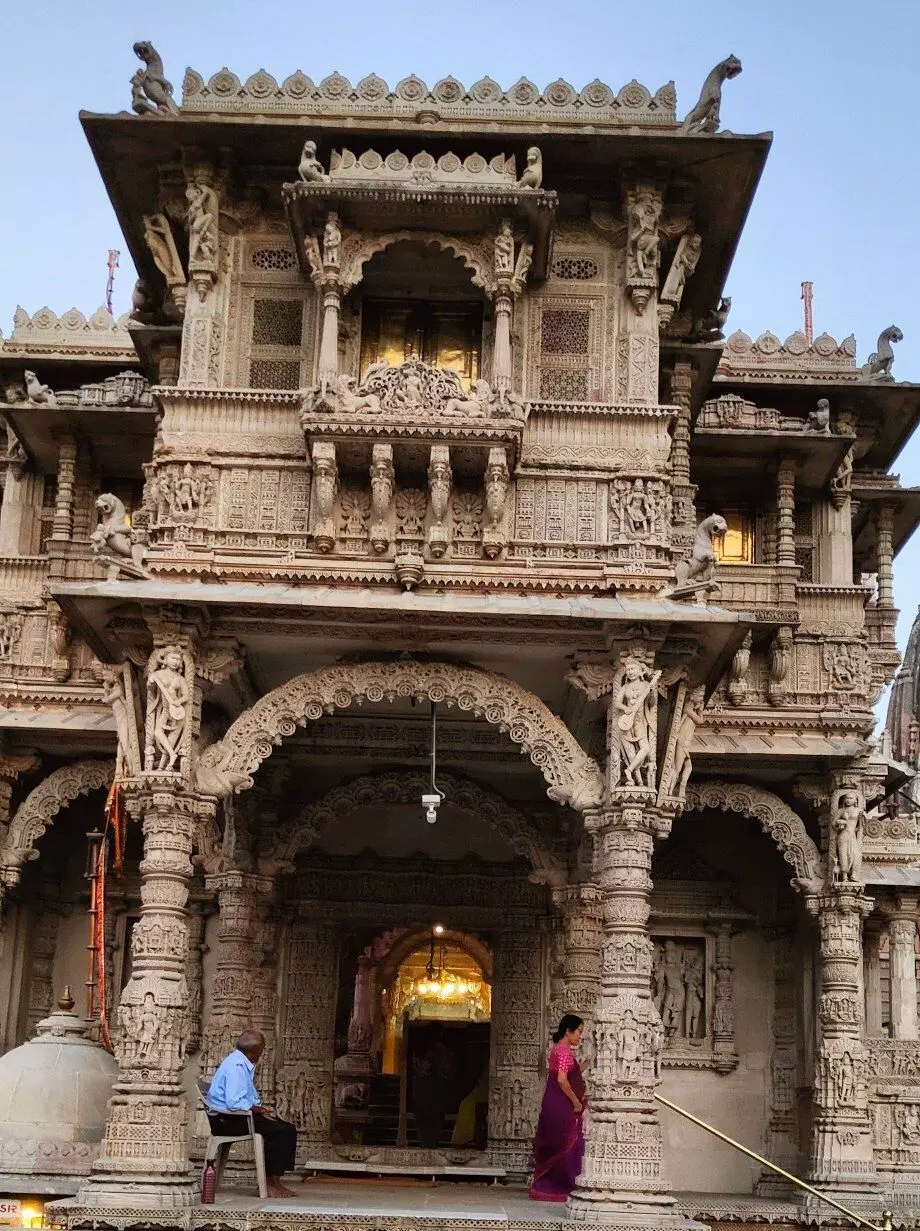Here’s everything you need to know about Ahmedabad’s 175-year-old Hutheesing Jain Temple
The temple artisans came from Sonpura and Salat communities, who are well known for creating masterpiece architecture in Gujarat and other places in the country
By CR Gowri Shanker
Hyderabad: Jain temples are architectural marvels. The temples stand apart for their intricate carvings and makeover, peaceful environment and cleanliness across the country and the world.
The 175-year-old Hutheesing Jain Temple in Ahmedabad or Amdavad, one of the largest cities in Gujarat, is one of the architectural beauties reflecting the glorious culture of India.
The temple, located on Shahibagu Road in Bardolpura, Ahmedabad, is a must-see place, among others, when on a visit to Gujarat.
Made of white marble, the temple sacred to the Jains has a long and cherished history. It is said that the temple was inspired by the famed Dilwara Jain Temple in the neighbouring state of Rajasthan.
A glorious history
History goes that the temple was built in 1848 by a wealthy trader, Seth Hutheesing, at an estimated cost of Rs. 8 to 10 lakhs. The temple was dedicated to the 15th Jain Tirthankara Sri Dharmanatha, son of King Bhanu Raja of Ratnapuri, who had attained salvation at Shrikanji.
The temple artisans came from Sonpura and Salat communities, who are well known for creating masterpiece architecture in Gujarat and other places in the country. Hutheesing Jain temple was the work of Premchand Salat and his team.
Visitors to the serene temple will be spellbound by its architectural beauty in stone. The sprawling temple with large ridged dome and dozen ornate pillars house the main shrine and 52 smaller shrines dedicated to various Tirthankaras.
Any visitor to the temple will be floored by its intricate architecture, protruding porches, decorated columns on all sides. A 78-feet Mahavir stambha (pillar) on the lines of the famed Chittor tower in Rajasthan attracts visitors on the outer courtyard in front of the main temple. The motifs reflect the Mughal era architecture.
The story goes that Seth Hutheesing Kesarisinh wanted to build a sacred Jain Temple and informed his family members. But before his dream was realised, he passed away at the age of 49. His wife Shethani Harkunwar decided to fulfil his dream and took up the onus task. With the support of other family members, the temple was completed in a span of two years and she dedicated the temple to her husband.
During the construction of the temple, Gujarat was hit by famine and it came as a big relief to labourers hailing from Sompura and Salat communities to eke out their livelihood. It is believed that there is a 175-year-old lamp that is still lit beneath the sanctum sanctorum of the temple.
Temple consecration
Hutheesing temple was consecrated (Pratishtha) by the famous saint Shanti Sagar Suri, which was attended by over four lakh people from across the country and abroad.
Manasthamba in front of the Hutheesing Jain temple was built in 2003 to celebrate the 2500th birth anniversary of Lord Mahavira.
Ahmedabad city reflects the harmony of diverse religions and cultures having influences of Hinduism, Jainism, and Islamic cultures. In fact, Gujarat has been the hub of Jainism and its influence could be seen in pilgrimage places dating back to the 6th and 7th century AD.
It is said that the 22nd Tirthankara of Jains, Aristanemi, attained salvation in Junagadh district of Gujarat.
The Hutheesing temple has five main deities in three bay structures and six deities in two sub-shrines in the basement. Idols of different Tirthankaras are located in 52 shrines called Devikulas along the passage.
Entrance free but no cameras inside
There is no entry fee to visit Hutheesing Jain Temple. One can click photos from the outside, but cameras are not allowed inside the temple.
The temple is open to public from 8 a.m. to 5 p.m. with a break from 1 p.m. to 2 p.m. for lunch.